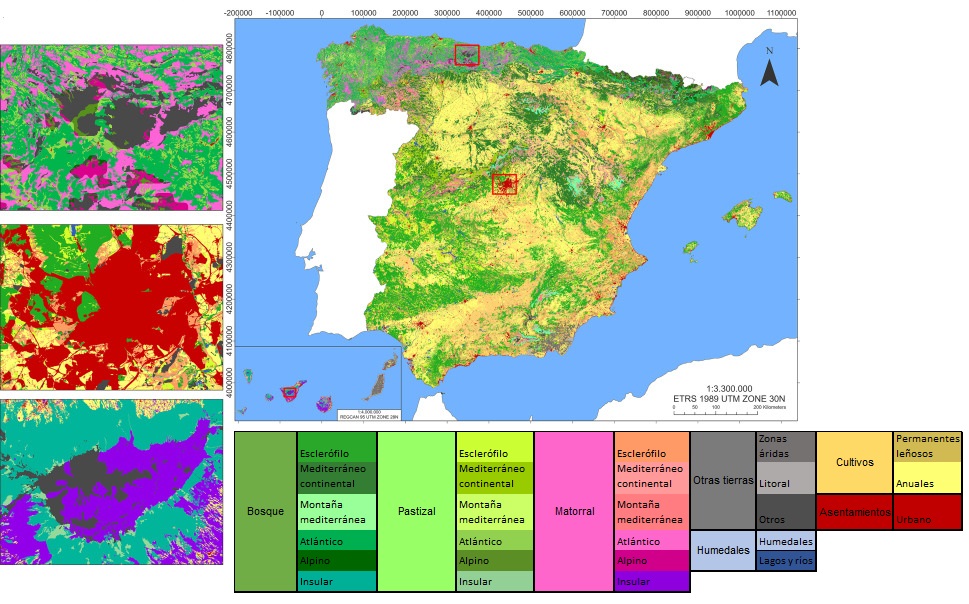Abel Verard / Irene Vega
Assessing spatial and temporal changes in ecosystems is essential to account for the contribution of natural capital to human well-being. The so-called extension accounts are one of those responsible for providing this type of information, in order to assess how the types of ecosystems have changed over time in our country. Its importance is such that both the United Nations Sustainable Development Goals (SDGs) and the Convention on Biological Diversity (CBD) advocate for a system capable of monitoring and quantifying changes in ecosystems on both spatial and temporal scales.
In this line, a scientific team from the Rey Juan Carlos University has developed a methodology to account for the extension and changes in the ecosystems of Spain between the years 1970 and 2015, within the framework of the System of Economic Environmental Accounting-Accounting of Ecosystems of United Nations. Among the results obtained, it stands out that, in the last 45 years, reforestation has been carried out in the different ecosystems and the loss of farmland, in favor of the growth of urban areas.
With regard to the conditions of these changes, the increase in the sclerophyllous Mediterranean ecosystem stands out -more resistant in long periods of drought- and the reduction of the Atlantic and Alpine ecosystems. "Such information on how ecosystems change over time allows multiple actors to make informed decisions about restoration priorities, management plans for protected natural areas, design of urban and peri-urban connectivity, etc.", explains Adrián G. Buzón, researcher at the Environmental Technologies area, Department of Chemical and Environmental Technology.
Thus, this research will mark an important step towards incorporating sustainable development into economic planning. In addition, it can be used to address critical environmental emergencies, including climate change and biodiversity loss.
"These accounts provide the location of ecosystems and the geophysical context to provide information on the effects of different land uses and environmental characteristics correlated with different policies," says the researcher.
The importance of the Environmental Accounting System
The United Nations System of Economic Environmental Accounting-Ecosystem Accounting (SEEA-EA) provides an integrated statistical framework for organizing biophysical data, measuring ecosystem services, tracking changes in the extent and condition of ecosystems, and linking this information with the economy and other human activities. This new statistical framework allows countries to measure their natural capital and understand nature's contributions to our prosperity and the importance of protecting it.
It should be explained that changes in the extent of ecosystems have direct consequences on ecosystem services and biodiversity, making it necessary to include studies of gross and net change in extent. Therefore, these accounting methods will be decisive for environmental assessment or climate change research.
However, a key element of ecosystem accounting is that “data must be managed by a single authorized source that integrates information at all levels of governance, scales and resources”, points out Adrián G. Bruzón. All in order to increase precision when it comes to influencing economic or political decisions.
This studypublished in the scientific journal Science of the Total Environment, is part of the efforts that are being carried out from Spain as part of the European Assessment Project for Integrated Ecosystem Accounting, which aims to promote the integration of natural capital accounting in the EU Member States and Norway.




